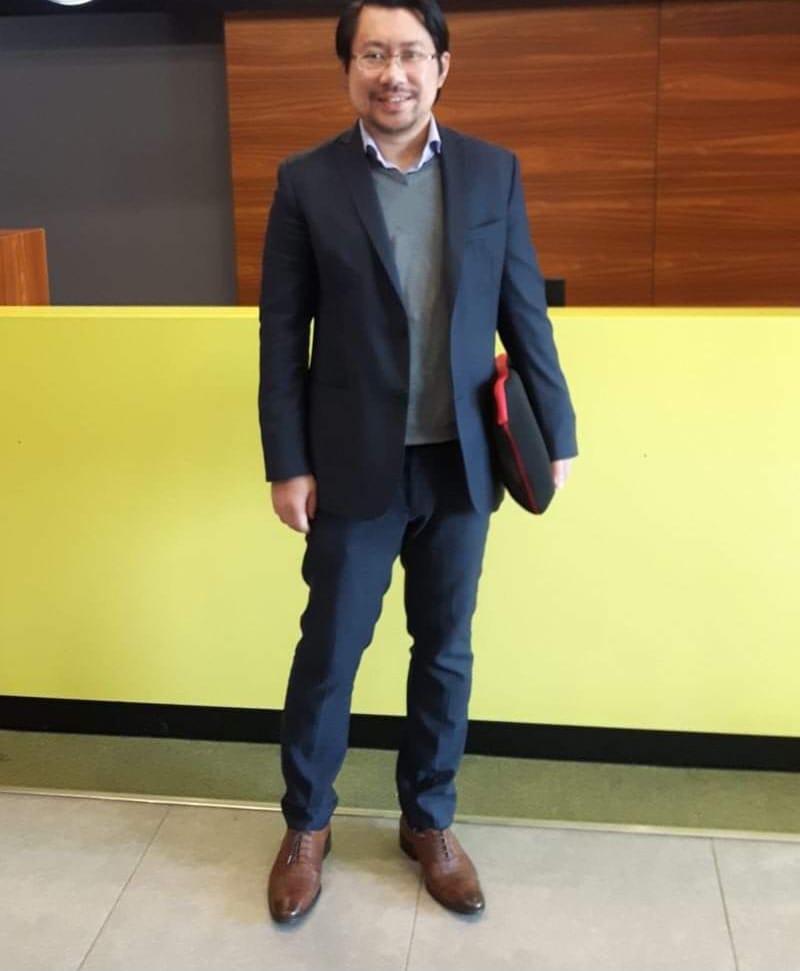Growth Mindset

My core experience and expertise had always been helping companies, business and individuals to scale up. This includes being able to expanding further their horizon be it from a business or personal perspective. What I mentor my mentee to structure themselves to be able to prepare and strategize to reach new limits and thrive in new markets. But the first step in making this happen is to have the right growth mindset.
I have met various parties who wants to expand globally but are very much afraid due to the fact that they feel threaten or fear of other environment and cultures. At the end of the day, progress means challenges and how you come out on the other side will matter. A lot of reflection is needed to embed the right mindset to be able to grow. Structuring the right plans will definitely be a major pre-requisite.
In today’s rapidly changing world, success is often defined by how well we adapt and grow in the face of challenges. This is where the concept of a growth mindset comes into play. Coined by psychologist Carol Dweck, a growth mindset is the belief that our abilities and intelligence can be developed through dedication, hard work, and learning from experiences. It’s about viewing challenges as opportunities for improvement rather than roadblocks to success.
Reflection
Reflecting on my journey with a growth mindset brings back a few pivotal moments where the choice to embrace growth over comfort made all the difference.
One of the earliest experiences that truly tested my perspective was during a project that seemed, at the time, completely overwhelming. I was tasked with leading a team to launch a new initiative, and I was far from an expert in the subject. My initial reaction was to question my ability. I felt like I was in over my head and started worrying that I’d fail publicly. It was tempting to think I simply didn’t have the “natural talent” for this kind of work and to let that thought undermine my confidence.
But then, I remembered a piece of advice about adopting a growth mindset and decided to shift my focus from the end result to the learning process. I broke down the project into small steps and started tackling each one by researching, asking for guidance, and practicing new skills. Whenever I made a mistake, I looked at it as part of the learning curve, which slowly but surely built my confidence and knowledge.
The project didn’t end with immediate, massive success, but by the end, I had learned so much about leadership, project management, and even my own strengths. This experience solidified my commitment to a growth mindset because it showed me how much more capable I could become just by taking things step by step and staying curious and persistent.
Later on, I found this mindset helped me adapt to new situations with a sense of optimism. There were times I felt out of my comfort zone, like when switching roles or learning a new skill, but I’d learned that these “discomfort zones” are where the real growth happens. Now, I seek out these kinds of challenges more intentionally, knowing that they’re exactly what keeps me moving forward.
Why is a Growth Mindset Important?
1. Enhances Resilience
People with a growth mindset are better equipped to handle setbacks. Instead of giving up when faced with a challenge, they see it as an opportunity to improve and learn. Resilience in the face of adversity is crucial in both personal and professional life, allowing us to bounce back stronger and wiser.
2. Encourages Lifelong Learning
Adopting a growth mindset fuels a love for learning. People with this mindset are curious, open to new experiences, and see learning as a journey. They seek feedback and are eager to expand their knowledge and skills, whether in their careers, relationships, or personal development.
3. Boosts Confidence and Self-Efficacy
A growth mindset helps build confidence by shifting the focus from outcomes to effort. People become less worried about “failing” and more motivated by the progress they’re making. They recognize that every small step brings them closer to their goals.
4. Improves Problem-Solving Skills
Those with a growth mindset approach problems as challenges to be solved, not barriers. They’re more likely to brainstorm new solutions, embrace creative thinking, and persist through difficulties, ultimately honing their problem-solving skills.
How to Cultivate a Growth Mindset
1. Embrace Challenges
Seek out challenges rather than shying away from them. Whether it’s taking on a new project at work, learning a new skill, or setting a personal goal, stepping outside your comfort zone is essential for growth.
2. Shift Your Perspective on Failure
Redefine failure as a learning opportunity. Instead of seeing it as a dead end, ask yourself what went wrong and what can be learned. Many of the most successful people in history have endured significant failures before reaching their goals.
3. Value Effort Over Results
Focus on the process rather than the outcome. Acknowledge the hard work you put in, regardless of whether it leads to immediate success. Over time, this dedication builds a strong foundation for more significant achievements.
4. Cultivate Self-Compassion
Growth doesn’t happen overnight, and setbacks are natural. Practicing self-compassion—being kind to yourself when things don’t go as planned—helps maintain motivation and avoids the negativity that can derail progress.
5. Celebrate Small Wins
Recognize and celebrate even the smallest achievements. These moments of success, no matter how minor, reinforce your commitment to growth and serve as motivation for the future.
Examples of Growth Mindset in Action
Many successful individuals embody a growth mindset. Thomas Edison, who famously said, “I have not failed. I've just found 10,000 ways that won't work,” epitomized this mindset as he invented the light bulb. Similarly, athletes like Michael Jordan, who was famously cut from his high school basketball team, used setbacks as fuel for improvement and mastery.
Final Thoughts
Embracing a growth mindset is not a one-time shift but an ongoing practice. It’s about consistently choosing resilience over resignation, curiosity over complacency, and learning over fixed assumptions. As we cultivate this mindset, we open ourselves up to boundless potential and, ultimately, a more fulfilling, dynamic life.
In the words of Carol Dweck, "Becoming is better than being." Embrace the journey of growth, and let it lead you to greater success and satisfaction.







